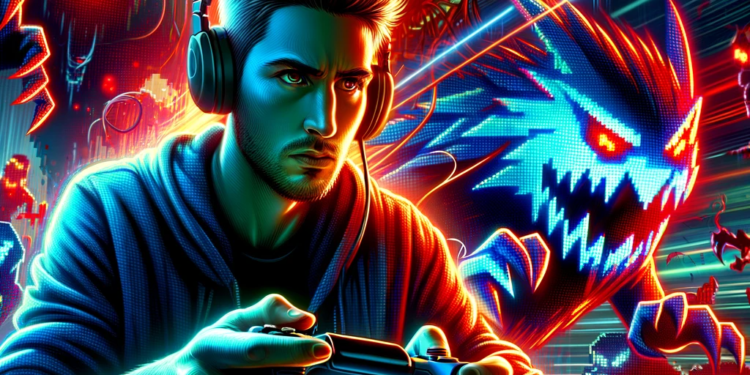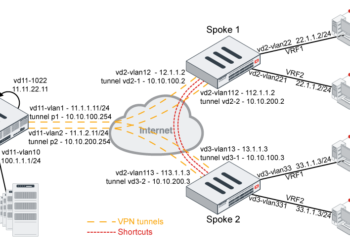I. Introduction: The Significance of Gaming Cybersecurity
The virtual realm has been a thriving ecosystem ever since the dawn of digital gaming. Whether it’s a throwback to the nostalgic 8-bit arcade games, the adrenaline-rushing FPS genre, or the immersive world of MMORPGs, digits and pixels have knitted countless gaming universes together. However, just like every coin has two sides, the rise of digital gaming also opens a Pandora’s Box—emerging cyber threats.
Their malevolent intent often targets our gaming euphoria, intending to transform it into a sinister playground. It’s like having your own fortress besieged by dragons—only these dragons are invisible and sly.
You might then be wondering, “What about my hard-earned, virtual gold? My legendary gear? My premium game packs?” And you’d be right in fretting; the financial implications of gaming cybersecurity can be quite substantial. Just imagine grinding away to collect those rare in-game assets, only to lose them in an instant due to digital thievery.
This is why every gamer, whether a casual button-masher or a professional esports champion, should understand the basics of cybersecurity. It’s not just about guarding virtual treasures; it’s about protecting the joy of gaming itself.
II. Understanding Gaming Threats & Vulnerabilities
Consider this your briefing about the monsters you’ll be battling in your digital fortress. These threats come in various forms such as malware, phishing, or even SQL injections. These aren’t typical boss battles; these enemy attacks can be hard to spot and can potentially empty your gold vault or even lock you out of your own castle.
While the idea of gaming data breaches might be associated with massive corporations, no one with an online presence is truly immune. This applies to PC and console gamers alike. Let’s face it—the exhilarating twists and turns of an RPG are less fun when there’s a potential digital devil lurking in the shadows.
III. Practical Steps to Secure Your Gaming Environment
Alright! Luckily, unlike a notoriously difficult video game boss, these threats can be mitigated. Just like the way you install upgrades and armor kits in your games, similarly you need to continually update your systems, use stringent firewalls, and make use of reliable anti-virus tools.
Mastering the art of crafting secure gaming credentials is also as crucial as deciphering a secret game code. Cast towards your accounts a shield of strong passwords and double their security with two-factor authentication—a tandem capable of warding off most security threats.
Never overlook the importance of a good backup plan either. I mean, wouldn’t it be a bummer if after slaying all those digital dragons, you forgot to save the game data? Safe and automatic backups can save you a lot of future headache.
IV. Safeguarding Privacy in Social Gaming and In-Game Transactions
Step into the world of social gaming and, suddenly, it’s not just about gameplay. It’s about your personal information being potentially exposed on social networks. Dan Brown may have The Da Vinci’s Code; you’d better have your own Privacy Code. Exercise vigilance on what you share.
When it comes to in-game purchases, it’s like venturing into dark dungeons. Ensure you’re dealing directly with the game developers or verified partners—not with shadowy figures offering deals that might be too good to be true.
And guys, I can’t stress this enough—watch what you say over in-game chat and voice communication—it can be a minefield of potential threats. You might think you’re merely coordinating an attack against another clan, but you might accidentally spill information a nearby eavesdropper could exploit.
V. Legal and Ethical Responsibility of Gamers & Gaming Companies
The responsibility for upholding the cybersecurity of the gaming world is a two-way street. Being conscious of online safety protocols is as important as finishing a tutorial when starting a new game—it may be tiresome, but it equips you with knowledge to navigate the gameplay.
Likewise, gaming companies don their own suit of armor in this battle. It’s their responsibility to secure both their games and your data, often employing their own set of mighty wizards—also known as cybersecurity experts.
An ideal gaming future is one where laws, policies, and community guidelines pop up like unbreachable firewalls, and everybody plays their part in crafting these barriers. It’s like winning a cooperative online game where everybody’s got each other’s back.
VI. Conclusion: Maintaining a Secure and Enjoyable Gaming Experience
In a nutshell, gaming cybersecurity is like the ultimate combo move—it merges the significance of cyber health, awareness of threats, and strong prevention strategies to keep your gaming environment secure. It’s like playing a game on ‘God mode’; you’re virtually untouchable.
And remember, collective responsibility and ongoing surveillance are as vital to gaming as your internet connection. It’s like having your entire guild keeping watch over your fortress while you’re off on an adventure.
So, arm yourselves with knowledge and keep an eye out for cyber threats. Be like a knight, ready to protect your realm and always on the lookout for new strategies.
VII. Frequently Asked Questions
Let’s wrap this up, saddle up and tote your gaming gear as we embark on a quick Q&A journey.
Q: What can help you know if a gaming site is safe?
Feeling like a deer caught in the headlights about a suspicious gaming link? Check for HTTPS and trusted seals, scan the site with security tools, and do a good old background check.
Q: How does game hacking impact you?
Ever felt like a boss-level monster unfairly wrecked your character? That’s what getting hacked feels like. It leads to loss of in-game progress, personal data exposure, and extreme frustration.
Q: How can you tell if your gaming account is hacked?
Notice any unusual activity? Are games and weapons you never purchased popping up? It’s like you’ve angered a chaotic neutral mage—it might be time to cast an investigative spell.
Q: Can console games be secure from cyber threats? Why?
Console gaming is like Fort Knox—it’s generally more secure due to its closed, proprietary systems. Still, vulnerabilities exist, so don’t throw caution to the wind.
Q: What precautions should you take while using public Wi-Fi networks for gaming?
Using public Wi-Fi for gaming? It’s like playing with a low-level character in a high-level zone—you’re pretty exposed. Use VPNs, check the network security, and avoid any critical gaming activity if possible.





